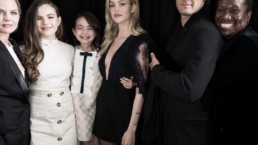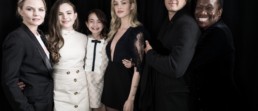Alex Pettyfer, Nicola Peltz, and Jennifer Morrison Talk ‘Back Roads’
"Being an actor can be a very solo journey. Being a filmmaker is such a collaborative, creative experience with everyone putting their own heart into the film... I think that's quite magical." Alex Pettyfer
The morning after the World Premiere of actor turned director Alex Pettyfer’s debut, Back Roads, I had the opportunity to chat with him and his co-stars Nicola Peltz and Jennifer Morrison.
Set up in a room on the second floor of the Roxy Hotel in Tribeca, the cast looked sharp all dressed in black, morning coffees in hand. Back Roads centers on Harley (Pettyfer) a young man stuck in a lower-class town in Pennsylvania who is left to care for his three younger sisters after the shooting death of his abusive father and the arrest of his mother. When shocking family secrets emerge, Harley’s life begins to spiral downward, leading to a devastating conclusion that impacts the entire community. During our exclusive interview, we talk about where their passion for movies stemmed from, secret childhood dreams, and the difference between blockbuster films vs indie films. We begin:
Being a first-time director is hard. Very hard.
Alex Pettyfer: It was all hard, very hard, but I would have never been able to make this film without the people that I collaborated with. Being an actor can be a very solo journey, you know, you’re telling a perspective from A to Z. As a filmmaker, you’re telling a multitude of stories. What I learned is that being a filmmaker is such a collaborative, creative experience with everyone putting their own heart into the film. I think that’s quite magical. [This experience] was very beautiful and I felt very supported. I’m so fortunate to work with people [including Juliette Lewis] that came on this film having this idea and vision as collaborating together.
Jennifer’s reaction to seeing Back Roads for the first time on the big screen.
Jennifer Morrison: It was great! It was the first time I saw the film besides the bits and pieces from doing ADR and stuff. I was just so excited to see Alex’s vision come to life on the screen. Not only is it a beautiful film but it really brings light to the subject matter of child abuse, and all of the things that come with the tragedy of that and how devastating that can be. I think it’s really interesting to look at that in a piece of fiction and realize that that can bring so much empathy and awareness to an audience. I was really moved by that part of the film.
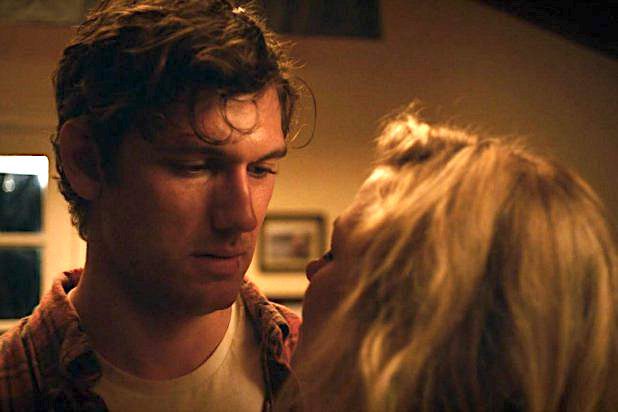
Nicola depended on the costumes to get into character.
Nicola Peltz: I’m a visual person, there were definitely pictures I saw that I was drawn to. Alex was nice enough to be very collaborative with what I wore [in the film]. I loved picking what my character wore and how she looked because when I put the clothes on it made me feel like a totally different person.
Alex Pettyfer: Good friends of mine are designers and Lee Daniels was at the premiere last night and they commented on how they thought you [Nicola] looked fantastic. My big anxiety was the clothes and how Nicola looked in the film. It was a concern because Nicola is such a beautiful woman, you don’t want to glamorize [her actions]. Credit to Nicola, she had a very set vision of what she wanted to play and who she wanted to be. I think one of the most powerful scenes in the film is her with that raw emotion when [my character] leaves the room and she’s left there.
Alex credits Pacino and De Niro for sparking his passion for film.
Alex Pettyfer: I wanted to be a racing driver, haha! When I was 15 I had done a few films like Alex Rider: Operation Stormbreaker and Tom Brown’s Schooldays, and I met this guy, whose father was the distributor behind Stormbreaker, at the premiere. He came up to me and just wouldn’t leave me alone. He said, ‘Let’s meet for coffee’ and I was like, ‘Sure.’ We had this budding relationship, he was a cinephile– he loved film. I would go and spend the weekend with him, sleep on his floor in Mill Hill and we would watch The Deer Hunter, all of Pacino and De Niro’s films. I watched hundreds of hours of these European films and films that I hadn’t even heard of, and my love of film grew [because of] this guy. So instead of being on the racetrack on the weekend, I would rather go hang out with him. I think that’s what sparked my taste for film.
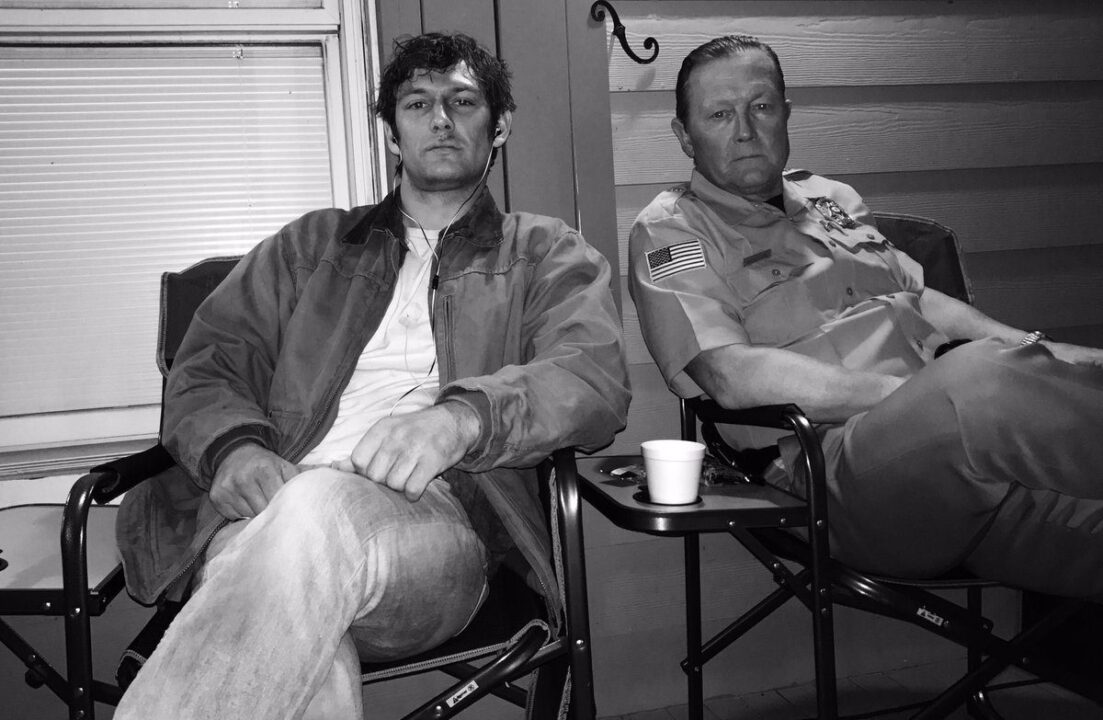
Jennifer credits her dad’s consistent talking through movies for her love of filmmaking.
Jennifer Morrison: My dad is obsessed with movies. All movies. He’s very indiscriminate of the movies that he loves and so he’s always watching movies. I didn’t even realize how much that was getting in me as a kid… it was just something he would do. He would watch and re-watch movies. Like Groundhog Day, he’s probably seen it like 100 times! He does this really funny thing, and he still does it, where he talks through the movie, like ‘Why would they do that?’ I’m like ‘I don’t know Dad, I haven’t seen it.’ And if he has seen it he’s like, ‘Did you see that? Do you see that? That means something just so you know.’ I’m like ‘OK DAD’ haha! As funny as it is now and as much as we tease him about it now, I think watching movies with him like that showed me the structure of storytelling. I was thinking of storytelling differently because of his questions and because of his comments. I had a love for film from a very young age because it was something I shared with my dad, but I also think I started to see it in a totally different light because of the way he would talk through the films.
That’s amazing, does he know this?
Jennifer Morrison: No, but he’s gonna find out!
Alex Pettyfer: I just love that he’s seen Groundhogs Day 100 times.
Jennifer Morrison: Oh my God I can recite almost all of What About Bob?, all of Field of Dreams, most of Groundhogs Day…
Nicola’s first passion was Ice Hockey.
Nicola Peltz: I grew up playing ice hockey…
Jennifer Morrison: That’s amazing! And the most unexpected thing!
Nicola Peltz: Haha! Then I just wanted to act when I was 12, and my parents were really against it. Finally, I just tried it out. But I really wanted to be like an ice hockey player.
Jennifer Morrison: Are you super into the [Mighty] Ducks? That had to have been your favorite movie.
Nicola Peltz: Yeah, haha.
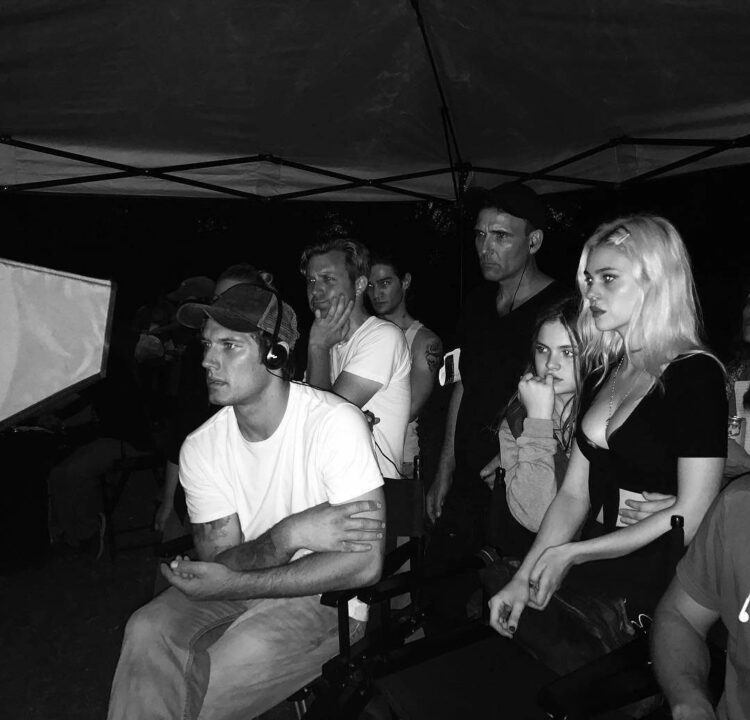
The vibe of a Blockbuster film vs Independent film like Back Roads.
Alex Pettyfer: There’s more of an intimacy which works so much better when you’re on a smaller film. I think it’s much more raw. I think when you’re on a bigger film you get lost in the imagination of what that is, that kind of spectacle. The grounded reality of when you work on a small film is you’re very connected creatively, all together, you know? You’re going on a journey together and that’s a beautiful experience as an actor.
Jennifer Morrison: Yeah, it felt like a family. It felt like you’re all there because you really love the material and you love the characters and you believe in the director’s vision. Not because you’re getting a payday or because you’re comfortable. There’s a different place that you’re willing to go to with your vulnerability and your emotions because you’re so invested. Watching the movie last night, I really felt like I left a part of myself on that screen and I can’t say that I always feel that way. That is a real tribute to the kind of director that Alex is and that vibe that he set on the set. Yeah, smooth films.
Alex Pettyfer: I prefer being on small films. I can’t explain it. When you’re on a bigger film, you have these amazing long shoots, like six months, and you have a lot of waiting around. On smaller films, you’re on such a short time schedule that your work is immediate. You don’t have time to play around and so you have to really be fully prepared for what you want to do and the choices you make.
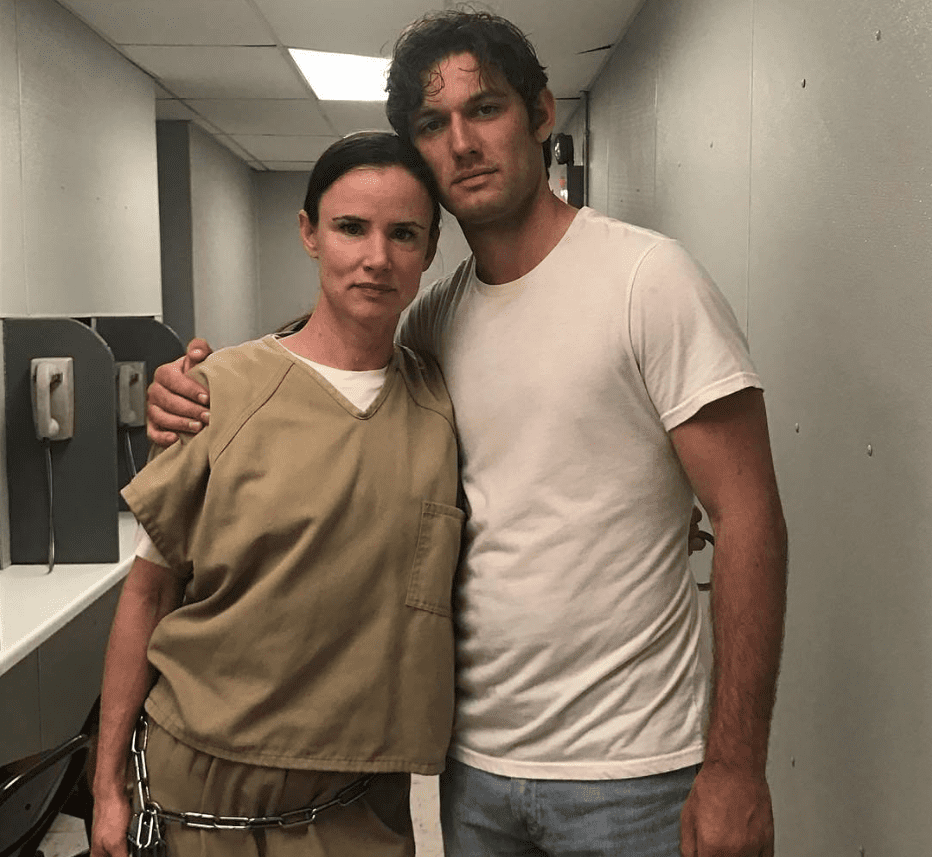
Kubrick inspired Pettyfer and his DP to shoot certain emotional scenes behind glass.
Alex Pettyfer: I said to my DP, Jared, that my favorite films are Kubrick films. I like the visual perspective of seeing something detached but detached in a way where you’re still so immersed in it. It was really our collaboration, I don’t take credit for those decisions. It was primarily Jared who came up with this idea– He said when you detach yourself from the perspective of someone’s emotional journey, you’re looking through a 2D visual. You have to relate that 2D visual into your own personal emotional journey and what has happened in your life.
Alex Pettyfer: When you detach yourself through glass, you’re all a sudden of watching something and you’re in [the character’s] journey. So it’s like a kind of like a misconception to the brain, to look at something through something else. You’re all of a sudden watching someone’s life and then your reimmersed back into the character. I thought that was an amazing thing. If you watch the scenes that are through glass like the couch burning and the Juliette Lewis scene, they’re one takes, very long takes.
Alex Pettyfer: The couch shot is almost like a painting, the two kids are just standing there for a good 30 seconds. You’re just like, ‘What’s going on?’ That was a real risk as a filmmaker, you know, because other filmmakers could think you’re trying to be egotistical or something, but it was a really selective message to try to entice the audience into the film even more on a perspective of attachment.
I Love…
Nicola Peltz: Dogs.
Jennifer Morrison: I need a list, my family, friends, dog…home. I was away so much for so long so home is a big deal for me.
Alex Pettyfer: I love unity. And love. I love love.
This interview originally ran on May 4th, 2018, during the Tribeca Film Festival
Morgan Rojas
Certified fresh. For disclosure purposes, Morgan currently runs PR at PRETTYBIRD and Ventureland.

